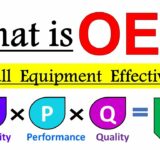Australia is a land of opportunity, boasting a thriving economy and stable political environment that makes it an attractive destination for investors from around the world. But with so many different investment options available in this vast and diverse country, it can be difficult to know where to start. Whether you’re looking for high-yield property investments or innovative tech startups, countless opportunities are waiting to be explored. So here are some of the most promising investment options available in Australia today!
Investing in Retail and Wholesale
Investing in the retail and wholesale sectors in Australia presents a compelling opportunity for investors. The retail industry is a significant contributor to the country’s GDP and is expected to continue its positive trajectory in the coming years. The rise of e-commerce has transformed the retail landscape, and Australian consumers have embraced online shopping, making it an integral part of the retail sector’s growth. The rise of wholesale investments plays a vital role in supporting the retail industry by facilitating the distribution of goods and services. Australia’s wholesale market offers diverse investment opportunities across various sectors, including fast-moving consumer goods, electronics, and clothing.
The Australian Stock Market
If you’re looking to invest in Australia, there are a few options available to you. You can buy shares in Australian companies listed on the ASX (Australian Securities Exchange), invest in managed funds or exchange-traded funds (ETFs) that track Australian share markets, or buy Australian government bonds.
Each option has its risks and rewards, so it’s important to do your research and understand what you’re investing in before committing any money. For example, buying shares in an individual company means you’re putting all your eggs in one basket – if the company does poorly, your investment will likely lose value. However, investing in a managed fund or ETF gives you exposure to a wider range of companies and can offer more stability.
Investing in Real Estate
There are many different options available for those looking to invest in real estate in Australia. Whether you’re looking to buy a property to live in or to rent out, there’s an option for you.
- One option is to buy an investment property outright. This means that you’ll be the sole owner of the property and will be responsible for all associated costs, such as mortgage repayments, insurance, and maintenance.
- Another option is to purchase a property through a real estate investment trust (REIT). REITs are companies that own and manage a portfolio of properties on behalf of investors. When you invest in a REIT, you become a shareholder in the company and can benefit from the profits generated by the Trust’s property portfolio.
Investing in Bonds and Certificates of Deposit
There are several options available to investors looking to invest in Australia. One option is to invest in Australian bonds and certificates of deposit (CDs).
- Australian bonds are debt securities issued by the Australian government or corporate entities. They typically offer fixed interest rates and are considered to be low-risk investments.
- Certificates of deposit are also low-risk investments, however, they offer higher interest rates than bonds. CDs are issued by banks and other financial institutions and typically have maturity periods of between one and five years.
Investors looking for more information on investing in Australia can contact the Australian Securities Exchange (ASX) or the Australian Investment and Securities Commission (ASIC).
Investing in Cryptocurrency
There are a few options available to those looking to invest in cryptocurrency in Australia. The most popular option is to buy Bitcoin through a reputable exchange such as Coinbase or BTC Markets. Other popular options include Ethereum, Litecoin, and Ripple.
Investors can also purchase cryptocurrency through a digital currency exchange such as Kraken or Bitstamp. These exchanges allow investors to buy and sell cryptocurrencies, as well as trade between different types of digital assets.
Another option for investing in cryptocurrency is through initial coin offerings (ICOs). ICOs are similar to initial public offerings (IPOs) on the stock market, except that they involve the sale of digital tokens rather than stocks. Many ICOs are conducted by startups looking to raise capital, and they typically offer investors the opportunity to purchase tokens at a discount.
Investing in Mutual Funds
If you’re looking to invest in Australia, one option you have is to invest in mutual funds. Mutual funds are investment vehicles that pool money from many investors and invest it in a variety of securities, such as stocks, bonds, and short-term debt. There are many benefits to investing in mutual funds, including diversification, professional management, and liquidity. And because mutual funds can be purchased through most major brokerages, they’re accessible to investors of all levels of experience.
However, there are also some risks associated with mutual fund investing, such as the potential for losses if the market declines and expenses associated with some types of mutual funds. Before investing in any type of security, it’s important to do your research and understand the risks involved.
Tax Implications for Investors
When it comes to investing in Australia, there are a few things you need to take into account – one of which is taxes. Depending on the type of investment, the tax implications will vary. Here is a quick rundown of some of the most common types of investments and their tax implications:
- Shares: When you invest in shares, you may have to pay capital gains tax (CGT) on any profits you make when you sell them. However, there are several CGT discounts and concessions available that can reduce the amount of tax you have to pay.
- Managed Funds: Managed funds are taxed at your marginal tax rate, but you may also be eligible for a discount depending on how long you hold your investment.
- Property: If you invest in property, you will generally have to pay stamp duty on the purchase price. You may also be liable for capital gains tax when you sell the property.
Investing in Australia is a great way to diversify your portfolio and benefit from the country’s strong economy. With the right strategy, you can take advantage of various options available to investors such as stocks, bonds, ETFs, mutual funds, and more. To make sure that you are making smart decisions when investing in Australia, it’s important to do your research and understand the risks associated with each option before committing any money. Armed with this knowledge, you can confidently decide which investment opportunities best suit your goals and financial resources.








